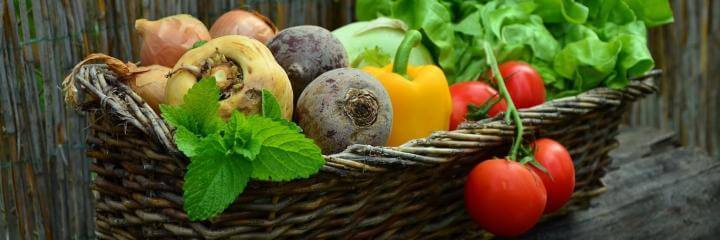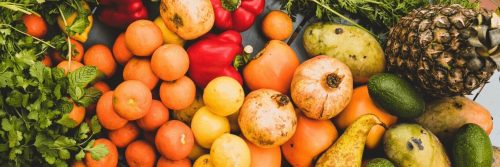There is a constant debate over raw vs. cooked food and which is better for you. The answer depends on what you are cooking. No one style of eating is better than the other. There is a range of factors that affect the way nutrients and vitamins in food are made available and the way in which our bodies can absorb them.
How to prepare food to maximise its benefit:
1. Fresh is Best. The fresher the fruit and vegetables the more vitamins and minerals they contain. Picking them removes them from their nutrient source, so the longer they have been picked, the more nutritional value they lose.
2. Store it Properly. The way food is stored can reduce nutrient loss. Store vegetables in the fridge (not the root variety). Fruit should be stored at room temperature (with the exception of berries). If you want to pre-cut any fruit or veg, store them in an airtight container and squeeze a small amount of lemon juice over them—this stops oxidisation.
3. Preparation. The way we prepare certain foods affects the availability of vitamins.
— Cut fruit and vegetables, doing so breaks down their strong plant cell walls making it easier to digest.
— Crushing/cutting garlic releases an enzyme which helps form a nutrient (allicin). Eating allicin has benefits relating to heart health and disease prevention. Let the garlic rest before adding as this allows more time for the allicin to form.
— Soak beans and grains. These types of foods are full of goodness. However, they also contain some not so beneficial elements. Soaking them reduces the level of phytic acid, which is good as this acid hinders the bodies ability to absorb calcium, iron, magnesium, and zinc.
4. Foods Best Eaten Raw. Water soluble vitamins (complex B vitamins and vitamin C) can lose much of their goodness in cooking particularly when boiled. These foods are best eaten raw. However, if you want to cook them, do so at low heat and with minimal water. Some of these cooking methods include; blanching, steaming and microwaving (it’s not as bad as you may think, a study showed microwaving broccoli allowed it to hold onto 90% of its nutrients).
5. Foods Best Suited for Cooking. Orange and red fruit and vegetables such as tomatoes, carrots, and sweet potatoes all benefit from being cooked. While cooking, tough cell walls are broken down, making their nutrients more readily absorbable for your body. Cooking eggs and meat denatures the protein in them, making them more digestible. As mentioned before, some food can have negative components in them; cooking helps break these down.
6. Pair Your Food. Vitamins A, D, E, and K are all fat soluble and as such should be eaten with dietary fats. You can find these kinds of fats in nuts, avocados, olive oil, and butter to name a few. If you are making a spinach and sweet potato salad, add some avocado and use olive oil and lemon juice as a dressing. There are some foods which contain healthy fat and fat-soluble vitamins, so they do not need any extra fats. For example, salmon contains both vitamin D and healthy fats.
7. Something is Better Than Nothing. It can feel overwhelming trying to know where to start when it comes to eating “right”. The right place to start is to eat natural foods. Avoid over processed foods. Fruit and vegetables are great for this. It doesn’t matter how you eat them – something is better than nothing. Regardless of how they are prepared, they still contain a percentage of the goodness they have when they were freshly picked. The best thing you can do is to eat them, so if you like carrots raw—go for it, if you prefer to boil your broccoli—that’s fine. After all, 50% of something is better than 100% of nothing.
Maximising the benefits of food can help reduce the need for supplements. Thinking about the way we store and prepare food can make a noticeable change in our health and vitality. The most important thing to do is to eat natural, fresh foods. Having a positive mindset can change your experience and make it more enjoyable.
Let food be thy medicine and medicine be thy food. ~ Hippocrates
TIPS:
- If you boil vegetables save the water that they boiled in and make vegetable stock. This way you retain those lost water-soluble vitamins, so you aren’t missing out!
- Don’t be put off by frozen veg. It isn’t as good as fresh, but frozen vegetables do retain some nutrients. Also, fibre is not affected by freezing. Frozen isn’t all bad.
Before you go don’t forget to check out an awesome recipe from Steve Pavlina.







